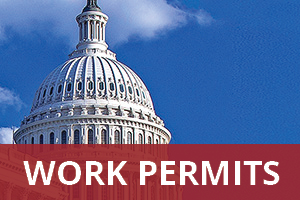The expansion of government powers would hand Immigration and Customs Enforcement (ICE) the authority to cancel a student’s legal status if the visa they used to enter the US is revoked.
Previously, a visa revocation would only impact a person’s ability to return to the country but would not end their permission to stay in the US as a student.
The new guidelines were outlined in an ICE document shared in a court filing on April 28, according to Associated Press.
Attorneys for international students said in court the new reasons would allow for faster deportations and would justify many of the Trump administration’s terminations of thousands of students’ legal status on the database maintained by ICE.
“This just gave them carte blanche to have the State Department revoke a visa and then deport those students, even if they’ve done nothing wrong,” said immigration attorney Brad Banias, as reported in AP.
When approached for comment, a State Department spokesperson said it “will continue to work closely with the Department of Homeland Security to enforce zero tolerance for aliens in the United States who violate US laws, threaten public safety, or in other situations where warranted”.
The PIE is yet to hear back from ICE.
This just gave them carte blanche to have the State Department revoke a visa and then deport those students, even if they’ve done nothing wrong
Brad Banias, immigration attorney
Sector leaders welcomed last week’s news that the government was restoring students’ legal status while it developed a new framework for future terminations, though the proposed vastly expanded new powers come as another blow for international students and educators.
The court heard that the new policy went against “at least 15 years of SEVP guidance”, referring to the Student and Exchange Visitor Program managed by ICE.
However, NAFSA emphasised on May 2 that “the document cannot yet be regarded as ICE’s new official policy”.
The document offers two new reasons for termination; non-compliance with the terms of nonimmigrant status and visa revocation by the state department.
In the case of the former, it is not clear whether a SEVIS record termination would also result in the termination of nonimmigrant status, though it would strip students of status benefits including applying for OPT or returning to the US after travelling abroad.
According to immigration attorneys, the new guidance could also allow for revoking student status if their names appear in a criminal database regardless of whether they were ever charged with a crime.
Traditionally, student visa revocations have not been common, but recently the US government began terminating students’ status either in addition to or instead of revoking their visas.
The Student and Exchange Visitor Information System (SEVIS) database is maintained by ICE to monitor international students’ presence in the US.
In the absence of disaggregated counts of visa revocation and SEVIS record termination, it remains unclear how many students will lose their status because of the new termination framework.
Since mid-March, sudden visa revocations by the State Department and SEVIS record terminations by ICE and DHS have caused widespread fear and uncertainty across US campuses.
“Exacerbating the stress was the rationale provided by the government, which ranged from wholly absent, to conflicting, to shifting, to downright baseless,” said NAFSA.
In March, secretary of state Marco Rubio said that his department was revoking the visas of students who took part in pro-Palestinian protests and those with criminal charges.
However, many students who saw their status terminated said they did not fall under those categories and argued that they were denied due process. Others said they were not aware their status had been revoked until logging onto the SEVIS database.





